ArriveCan contractor admits ‘mistakes,’ faces historic public rebuke in Parliament; RCMP search contractor’s home day before House admonishment
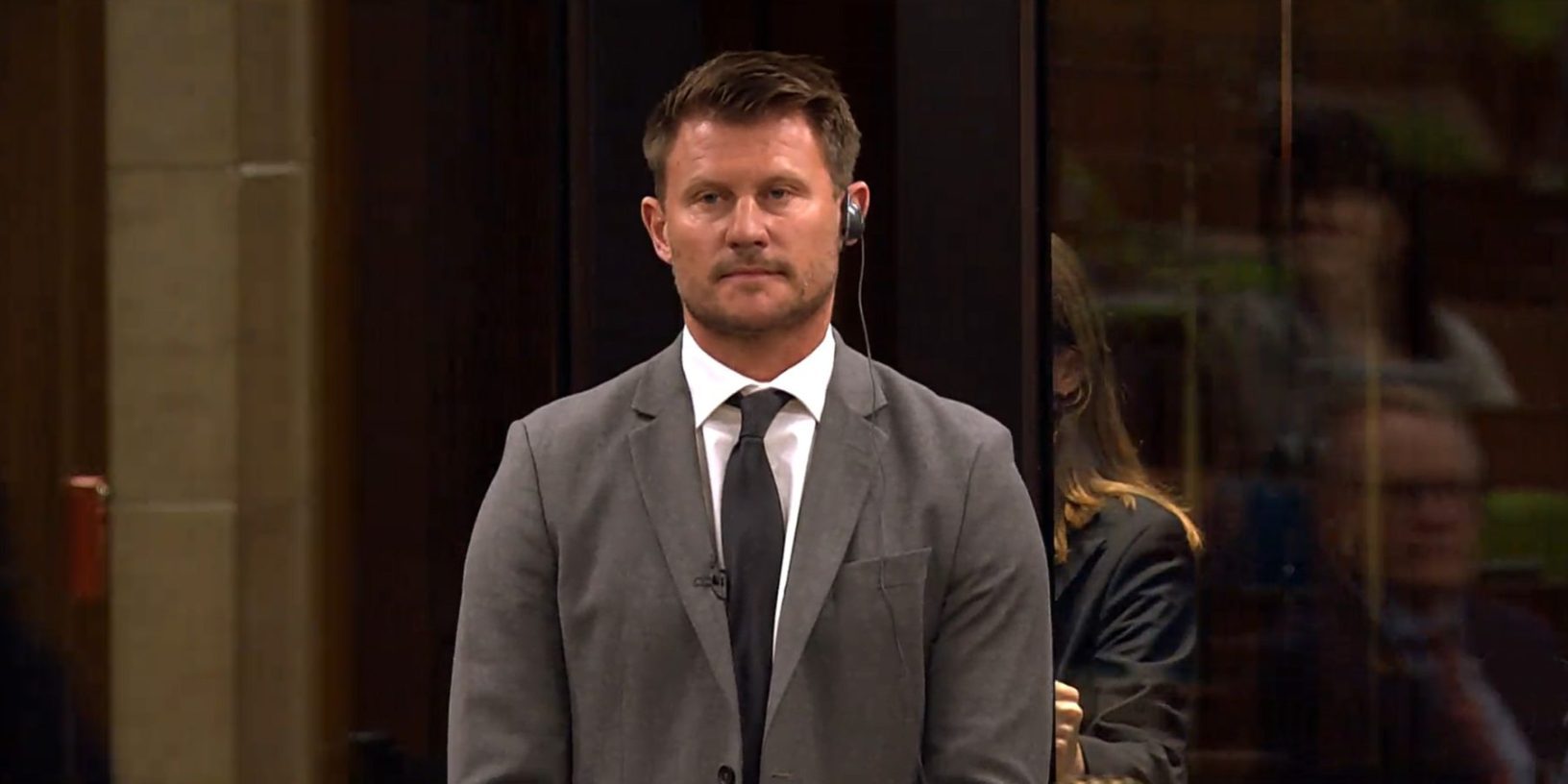
The managing partner of GC Strategies, the main contractor for the controversial ArriveCan application, says he made a “mistake” by not responding to MP questions at committee, but denied any wrongdoing during his historic testimony in the House of Commons on April 17.
“Acknowledging the fact that I am being admonished, making history right now, I think I have acknowledged the fact that I made mistakes in previous committees,” Kristian Firth told MPs.
All eyes were on Firth as he attended at the bar of the House under the supervision of the Sergeant-At-Arms shortly after Question Period.
House Speaker Greg Fergus (Hull-Aylmer, Que.) told Firth the House gave him the power to reprimand the contractor for his conduct before the House Government Operations and Estimates Committee, for refusing to answer questions and “prevaricating other questions.”
“For all these reasons, on behalf of the House of Commons, I admonish you,” Fergus said.
A few minutes into Firth’s testimony, the RCMP confirmed that its sensitive and international investigations unit executed a search warrant on April 16 at an address that, according to government records, is the mailing address for Firth.
“This search warrant was not related to the ArriveCan investigation. We will not be providing the name or business to protect the privacy of the persons at the residence,” said the RCMP statement to The Hill Times, which called the investigation ongoing, with no charges at this time.
Firth’s was “the only address attended,” said the RCMP in response to The Hill Times‘ question about whether Darren Anthony’s address, the other partner of GC Strategies, had also been raided.
Firth confirmed to the House that he received a search warrant for his property to obtain electronic devices relating to the Botler AI’s allegations. He testified that he was not at the premises during the search and that he did not know if any documents were taken as part of the search.
Firth also testified that he has not been contacted by the RCMP regarding its investigation of the ArriveCan app.
The RCMP has been investigating the activities of GC Strategies, both in relation to the ArriveCan application and a separate project the firm worked on with a Montreal-based company called Botler AI. The two co-owners of Botler AI were the ones to come forth with allegations of misconduct against GC Strategies.
Firth had previously testified before the House Government Operations and Estimates (OGGO) committee that the “wrong versions” of one resumé belonging to Ritika Dutt, one of the co-founders of Botler AI, was provided to the government and that this was a “mistake.”
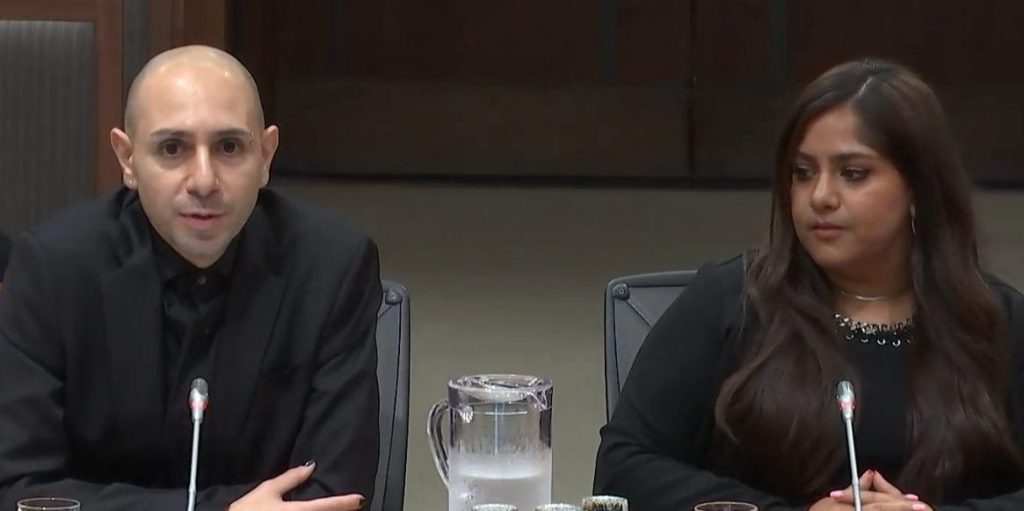
The emergency procurement of the ArriveCan app has been under further scrutiny since the fall of 2022, due its soaring price tag along with the allegations of procurement misconduct involving some of the contractors who worked on creating the application.
GC Strategies was the primary contractor for the procurement of the ArriveCan app, and received an estimated $19.1-million for its work, which did not involve the app’s actual development or maintenance.
A scathing auditor general report found that GC Strategies was involved in creating “restrictive and narrow” criteria for a $25-million competitive contract that eventually was awarded to the firm.
Firth told MPs that the request for proposal (RFP) for the contract in question had 220 requirements and that he “offered up three suggestions” to which 40 qualified vendors responded to.
“So I don’t see that as overly restrictive,” he said.
Firth also testified that the government did not ask his company to pay back the fees received for finding resources to do the technical work to run the ArriveCan application. He also denied participating in a “bait and switch,” a deceptive practice where contractors pitch resources to secure contracts but replace them with lesser alternatives. The Office of the Procurement Ombudsman’s (OPO) review, published on Jan. 29, showed that this was the case in 76 per cent of the ArriveCan contracts, where subcontractors did not perform any work, and were replaced with others to do the job.
“We were part of the 24 per cent,” Firth told the MPs.
The OGGO Committee has been looking into the ArriveCan scandal since October 2022. The committee had more than 20 meetings and has heard from more than 60 witnesses. The House Public Accounts Committee has also been probing the cost of the application as well as allegations of misconduct since early 2024.
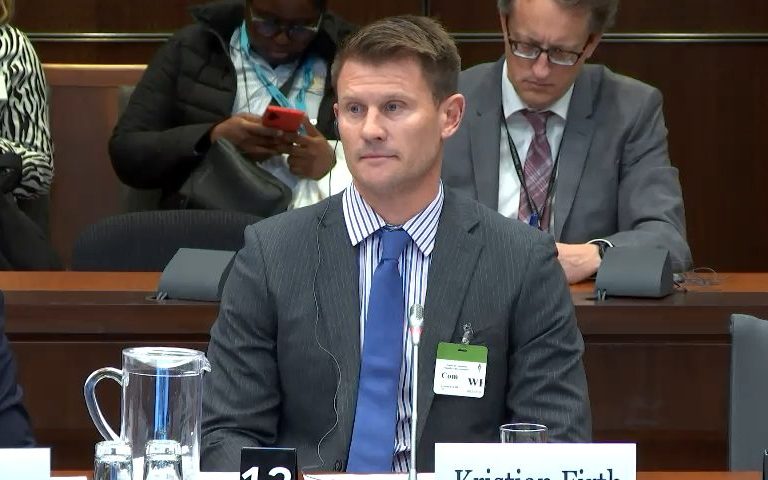
Firth appeared three times before OGGO, and responded to questions stemming from allegations of misconduct as well as reports on the app’s procurement following investigations by the auditor general and procurement ombudsman. He has been accused of having cozy relationships with government officials, which he repeatedly denied in his previous testimonies.
MPs ‘disappointed’ with ArriveCan contractor’s historic appearance
Firth’s appearance—only the third public rebuke before the Parliament since 1990—comes following a motion adopted unanimously by the House of Commons on April 8. The House found Firth to be “in contempt for his refusal to answer certain questions and for prevaricating in his answers to other questions.”
The last time anyone was called to appear before the bar was more than 100 years ago, in 1913, in the R.C. Miller case following the House Public Accounts Committee’s probe into allegations of bribes for government contracts involving a light and heating company.
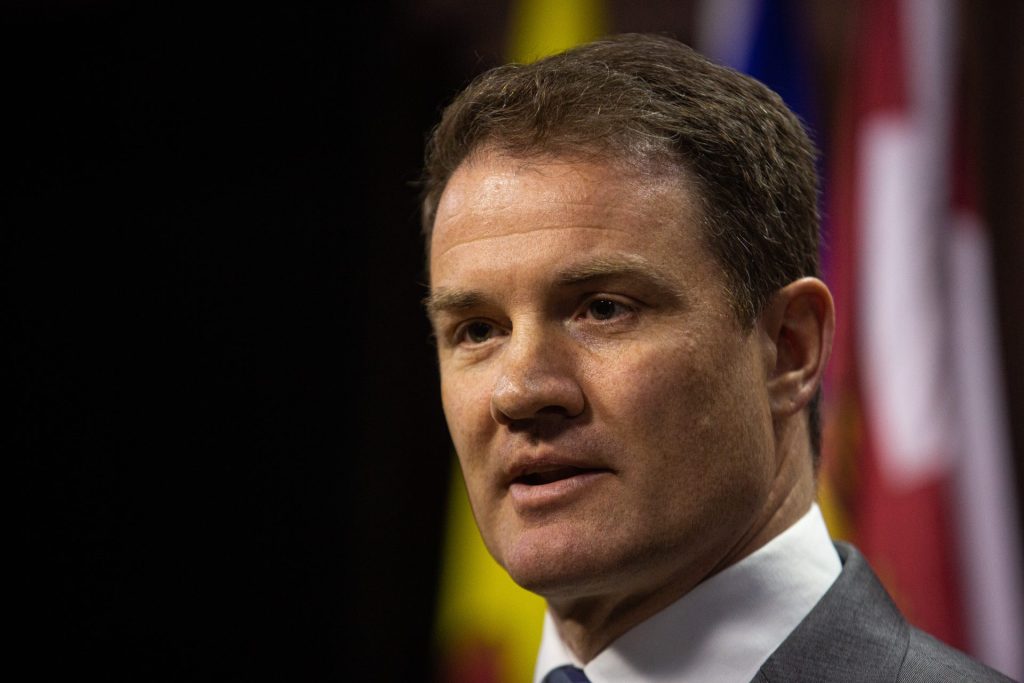
In an interview with The Hill Times, NDP MP Taylor Bachrach said he found Firth’s responses “troubling.”
“It’s disappointing that after all, of Parliament’s efforts to get to the bottom of this scandal, that Mr. Firth isn’t showing more contrition for his blatant disrespect of Parliament. In several instances, direct answers weren’t provided to simple questions,” said Bachrach (Skeena-Bulkley Valley, B.C.).
“The bottom line is that the Canadian government paid more than it should have for a piece of technology. When we lifted the veil on how that happened, we found a system that appears to be rigged in favour of well-connected government insiders. What we’re seeing is a symptom of the government contracting out more and more core public services,” Bachrach added.
Following Fergus’ admonishment, Government House Leader Steven MacKinnon suggested a delay of the proceedings. He cited a doctor’s note provided to Parliament outlining Firth’s fragile mental and physical health, which was met with some opposition’s MPs chanting “Liberal corruption.”
“We believe that what happened with the ArriveCAN app is unacceptable. We want to assure that all unanswered questions receive answers,” said MacKinnon (Gatineau, Que.), before saying the Liberals “do not believe it is appropriate to question Mr. Firth if he is not medically able to participate.”
“Forcing someone against medical advice to do something a doctor believes could harm their treatment and recovery is indeed beneath the dignity of this place. The Leader of the Opposition [Pierre Poilievre] is giving us a demonstration of his character, and Canadians should pay careful attention,” said MacKinnon.
In a social media post, Conservative MP Kelly Block, her party’s procurement critic, summed up the testimony as “cronyism at its finest.”
“The Trudeau Liberals have broken the procurement system. After 8 years, Trudeau officials are finding subcontractors for their favourite middlemen companies,” wrote Conservative MPs Kelly Block (Carlton Trail–Eagle Creek, Sask.).
What did former investigations find about GC Strategies?
Procurement Ombud Alexander Jeglic’s review into the ArriveCan application presented the first independent findings about the matter in late January. Jeglic concluded that the practices in the ArriveCan contract threatened the transparency and integrity of the government’s procurement process, and “favoured” GC Strategies.
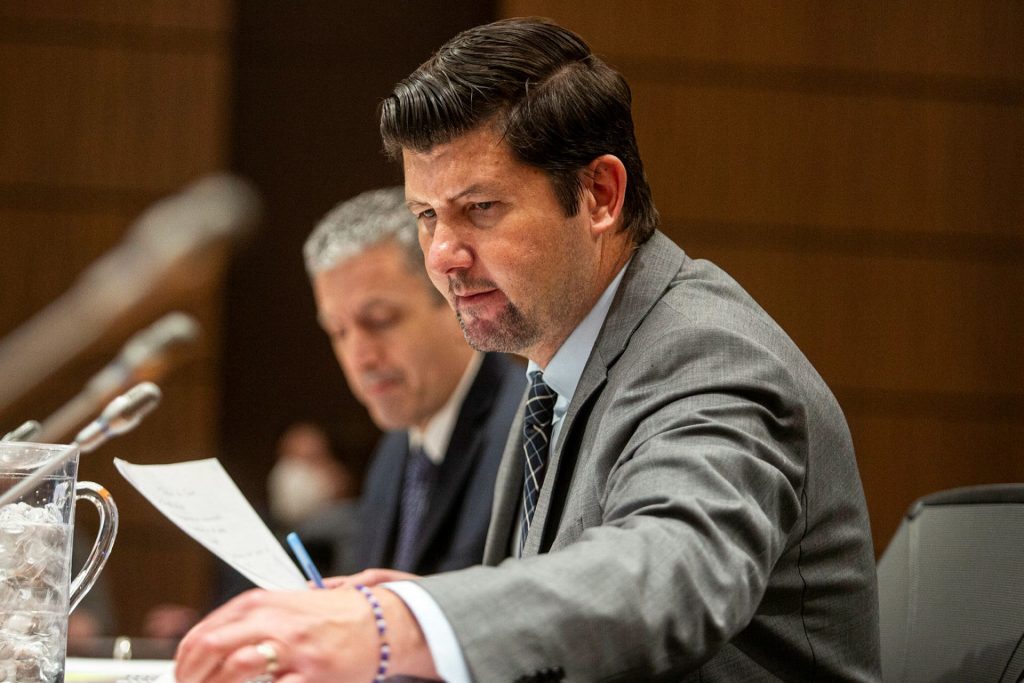
Auditor General Karen Hogan’s Feb. 12 report, estimated the overall cost of the application to be $59.5-million, but said the exact cost could not be determined due to a lack of documentation throughout the process. Hogan told MPs “we paid too much for this application.”
According to Hogan’s breakdown, GC Strategies received $19.1-million for its work on ArriveCan, despite not doing any work on the development or maintenance of the app. The report also said that GC Strategies was involved in creating “restrictive and narrow” criteria for a $25-million competitive contract that eventually was awarded to the firm.
The AG’s report found little documentation to support how and why GC Strategies was awarded the initial ArriveCan contract through a non-competitive process. It also could not determine which agency official made the final decision to select GC Strategies.
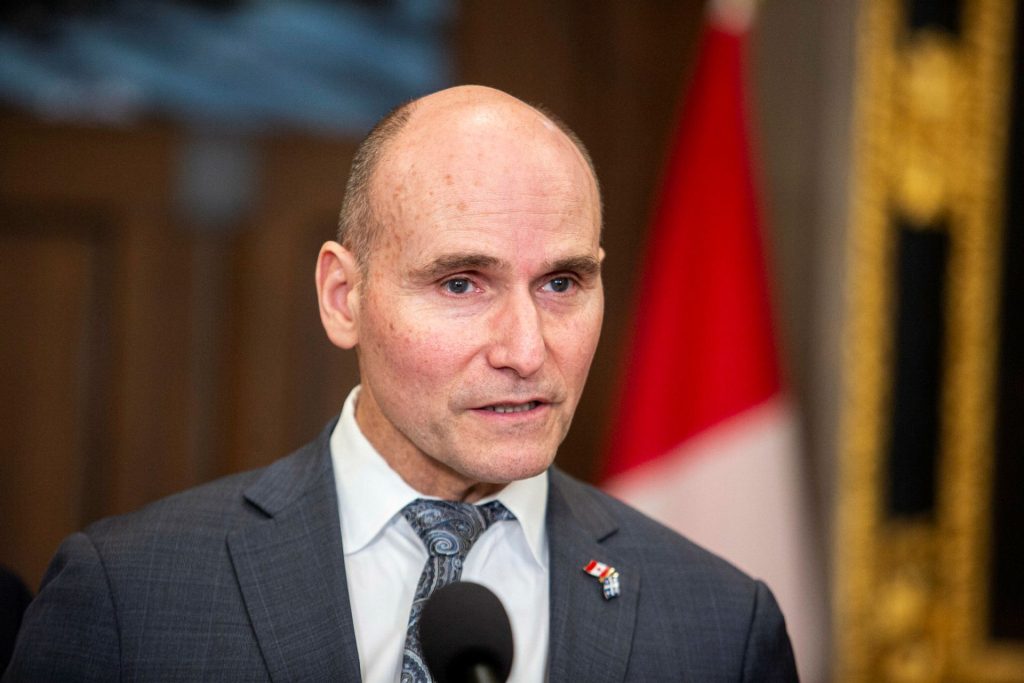
At his first appearance before OGGO on Oct. 20, 2022, Firth told MPs that GC Strategies was an IT staffing firm established in 2015. He confirmed that—at the time—the company only had two employees, including himself and Anthony, and that they operated out of a downtown Ottawa office until switching to work from home in 2020. According to Firth, the firm “built teams and provided subject matter experts for many projects for over 20 federal departments.”
“GC Strategies invoiced over $44-million over the past two years for all of our federal work over 20 departments,” Firth told MPs then, noting he usually receives between 15 and 30 per cent of contract value as his commission.
Firth also said before that his two-person IT staffing firm received around $22-million over three years from the Canada Border Services Agency (CBSA) for various IT-related work. He testified that GC Strategies “was responsible for certain requirements” of the application. He said it was the government that approached his firm to staff a team under their management and direction.
Firth and Anthony made closer to $2.5-million in commissions out of the $11-million received over two years for ArriveCan, Firth told MPs during his last testimony before OGGO. Firth said their work, which was approximately 30 to 40 hours per month, included tasks such as accounting, invoicing, and making timesheets, and the rest of the money went to the subcontractors that actually worked on the application.
The ArriveCan application was launched on April 29, 2020, for travellers to Canada to submit their travel information, vaccination status, and COVID-19 test results electronically at border crossings. A joint production of the Canada Border Services Agency (CBSA) and the Public Health Agency of Canada (PHAC), the government advertised it as “an alternative to PHAC’s online or paper COVID-19 contact tracing form.”
The use of the application was made mandatory for air travellers in November 2020, which then got extended to include all travellers. That mandate ended in October 2022, and the use of the application has been optional since then.
ArriveCan faced criticism from the time it launched, blamed—alongside the government’s overall travel rules—for its impact on tourism, concerns over privacy regarding sensitive data collection, and technical glitches such as erroneously instructing travellers to quarantine. The auditor general’s Feb. 12 probe into the application—which had 177 versions—showed that around 10,000 travellers were wrongly instructed to quarantine thanks to one update in June 2022.
Amir Morv and Ritika Dutt, the co-founders of Botler AI, a Montreal-based software company, have been central figures in the ongoing investigations surrounding the ArriveCan application, despite never working on it.
Botler AI was working on a project with the Department of Justice, which aimed to assess individuals who faced sexual misconduct in the workplace in 2019. The co-founders of the company were approached by Firth to work on a similar project relating to workplace misconduct for the CBSA. The pair agreed to work on the pilot project, which was the beginning of their professional ties with GC Strategies, according to Morv and Dutt.
The Hill Times






 LICENSING
LICENSING PODCAST
PODCAST ALERTS
ALERTS













